Popular Cities in Malaysia for Tavi are:
Listing popular specialists:
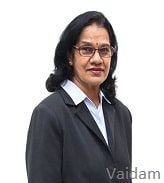
Consultant, 38 years of experience

Ambulatory Blood Pressure Monitoring Arrhythmia Surgery Balloon Valvuloplasty Cardiology Consultation Cardiomyopathy

Senior Consultant, 20 years of experience

Internal Medicine and Cardiology.

Senior Consultant, 26 years of experience

Non-Invasive Cardiology, Invasive Cardiology and Interventional Cardiology.

Consultant, 20 years of experience

Valvular Heart Disease Coronary Artery Disease Arrhythmias Heart failure (Acute and Chronic)
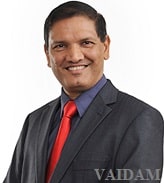
Consultant, 20 years of experience

Cardiology / Interventional Cardiology.

Consultant, 35 years of experience

Cardiac examination and treatment with non-invasive and invasive techniques.

Consultant, 40 years of experience

Hypertension, Coronary Artery Disease and Vascular Heart Disease.

Consultant, 50 years of experience

Angina Pectoris Coronary Heart Disease Heart Disorders Peripheral Artery Disease
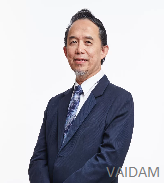
Dr. Mohd Hamzah bin Kamarulzaman
Senior Resident, 33 years of experience

Aortic Surgery, Ventricular septal defect (VSD) and Atrial septal defect (ASD), Coronary Artery Bypass Surgery and Grafting, Intra - Cardiac Repair, Tetralogy of Fallot, Patent Foramen Ovale, Valve Repair and Replacement
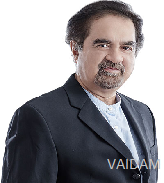
Dr. HJ Nik Isahak Wan Abdullah
Consultant, 30 years of experience

Angina pectoris Atherosclerosis Cardiothoracic diseases/ Cardiovascular disorders Balloon Angioplasty of Coronary Artery Interventional cardiology procedures Coronary angiogram (CAG) Pacemaker Implantation
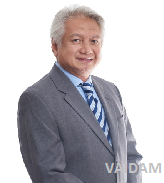
Consultant, 25 years of experience

Cardiac Assessment Cardiac Rehabilitation Cardiology Consultation Coronary Angiogram Coronary Angioplasty Electrocardiogram (ECG or EKG) Pericardiocentesis Ventriculography

Consultant, 25 years of experience

Coronary intervention Acute myocardial infarction
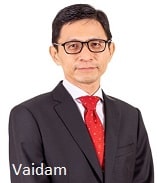
Consultant, 26 years of experience

Echocardiology Coronary and peripheral interventional procedures

Consultant, 22 years of experience

Optical Coherent Tomography Intravascular ultrasound

Consultant, 30 years of experience

Heart diseases Congestive heart failure Bypass surgery Arrhythmia Angioplasty

Senior Consultant, 20 years of experience

Complex angioplasty Small vessel stenting Chronic total occlusions Percutaneous interventions in diabetics Intravascular ultrasound Aldosterone and autonomic tone in heart failure

Senior Consultant, 30 years of experience

Balloon angioplasty of coronary artery, Coronary angiogram, Echocardiography, IVC Filter Insertion, Intra-aortic balloon insertion, Pacemaker implantation.
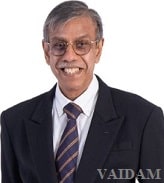
Senior Consultant, 40 years of experience

- Echo Cardiography - Coronary Angioplasty - Balloon Valvuloplasty - Cardiovascular Disease - Interventional Cardiology
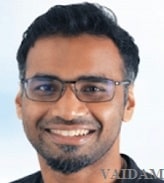
Dr Mohamed Nazrul bin Mohamed Nazeeb
Consultant, 10 years of experience

- Cardiomyopathy - Pulmonary Hypertension - Valvular Heart Disease - Peripheral Arterial Disease - Pulmonary Embolism

Senior Consultant, 30 years of experience

Ischaemic heart disease hypertension, Heart failure, Arrhythmia, Valvular heart disease and Cardiomyopathy.
Possible complications after TAVI may include vascular injuries, bleeding, stroke, atrioventricular conduction system injuries, Aortic regurgitation, etc.
Our Services for Tavi in Malaysia
Transparent - Professional - Without Hassles
TAVI stands for Transcatheter Aortic Valve Implantation it is used in helping to improve a damaged aortic valve.
No, TAVI is not a major surgery it is less invasive surgery which is being designed to replace a diseased aortic valve.
Patient who is having severe symptomatic aortic stenosis are at high risk for conventional surgical aortic valave replacement.
Even though the success rate of TAVI is high it has only got few complications, some of the risks of the procedure includes bleeding, injuries, stroke, atrioventricular conduction, system injuries and aortic regurgitation.
TAVI is not recommended for those who have severe aortic stenosis , TAVI surgery will not be beneficial to them but they can definitely get benefit from TAVR surgery.
TAVI is not recommended if you have got any problem with your aortic valve and you are high risk for undergoing an open heart surgery. The aortic valve is one of the four main valves present in your heart.
The surgery is done under local anaesthesia and it will take around one to two hours to do the surgery in some cases it can also be done under general anaesthesia depending on the best solution for you.
In this procedure a catheter is being inserted in your blood vessels and then it is passed in your aortic valve and the catheter is used to guide and fix the replaced valve one above the other.
You will be in hospital for one to five days after the surgery initially you will be under close observation but when the doctor feel you are fit to go home then they can send you home.
TAVI procedure will take around three hours to complete and it is performed under local or general anaesthesia.
Recovery rate of the people is different depending on their health and the type of heart valve procedure. You will need around six to ten weeks to recover completely after the procedure. You have to do daily activities and exercises during your recovery.
There is no definite data which can tell how long your TAVI, according to recent data the age of TAVI lasts upto 20 years.
You may feel umcomfortable after the procedure but it will go off in few days and you will be also given painkillers.
You will be under observation for one or two days after the procedure, your cardiologist will come every day to check you. Your wound site will be monitored by your team during this time.






NABH Certified Healthcare Discovery Platform
Vaidam is NABH certified healthcare discovery platform that will connect you to top-notch medical experts, hospitals, wellness options, and trusted travel partners to help identify and make the right healthcare choices.

Researched & Personalized Treatment Plan - Under One Roof
You can search for the best hospitals, read about them, view photographs of the facilities at the hospitals and the places at which the hospitals are located, and check the cost of treatment.

Quality Treatment Within Your Budget
As soon as you post an enquiry, the patient relation team will collect details from you, share them with the doctors and hospitals on Vaidam's panel, and get a personalized treatment plan. We research to get quality treatment within your budget.

Treatment to Travel
Vaidam concierge assists patients, to get medical Visa, the best airline fares and arrangements for your stay. Our concierge also helps you with daily travel, language, and food concerns. Vaidam does everything to be your perfect host. All of Vaidam’s services are free of cost to patients.

International Reach
Vaidam Health has network in 15+ countries, which includes India, Turkey, UAE, Germany, South Korea, Thailand, Malaysia, Spain.
Note: Vaidam Health does not provide medical advice, diagnosis or treatment. The services and information offered on www.vaidam.com are intended solely for informational purposes and cannot replace the professional consultation or treatment by a physician. Vaidam Health discourages copying, cloning of its webpages and its content and it will follow the legal procedures to protect its intellectual property